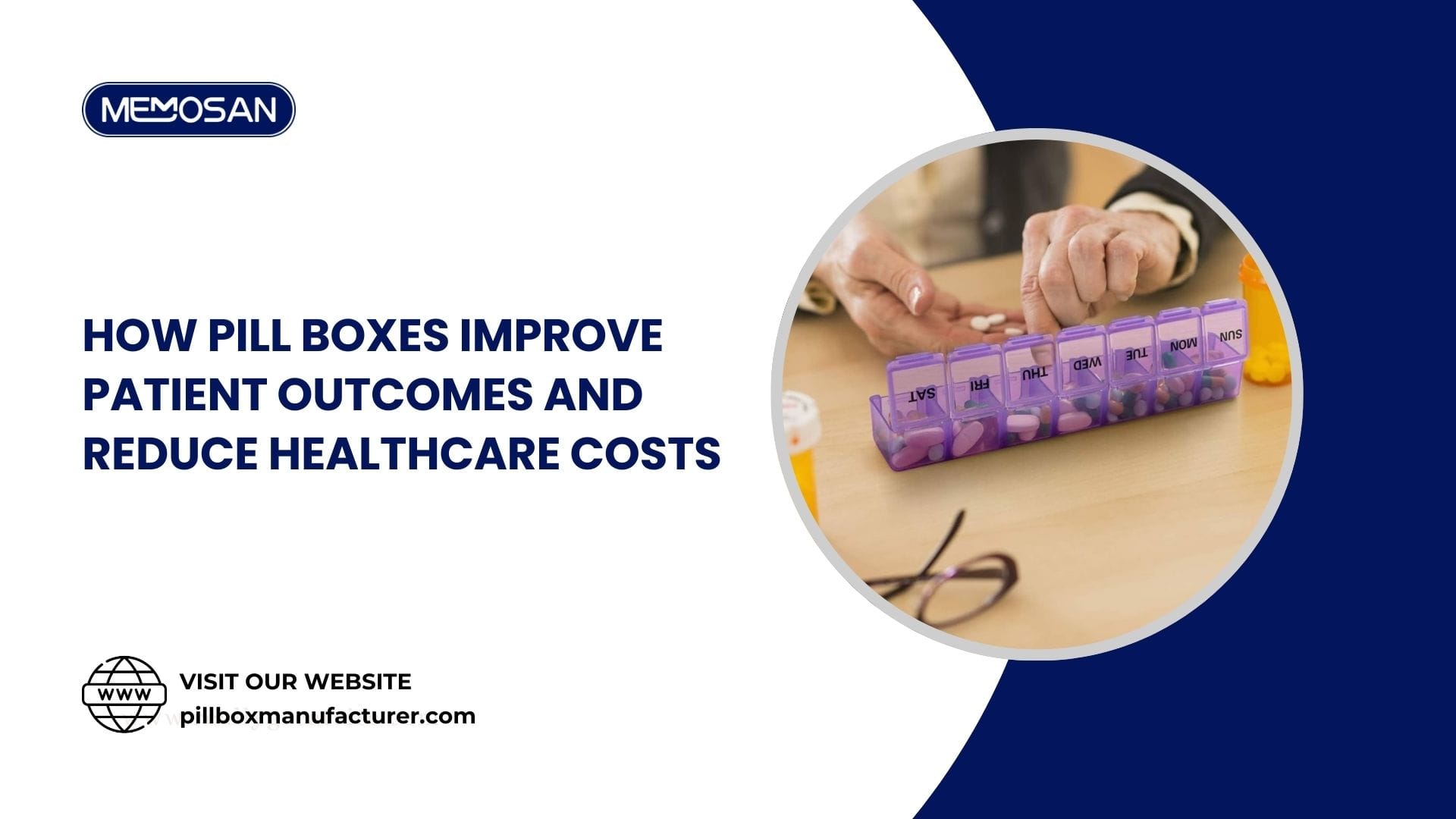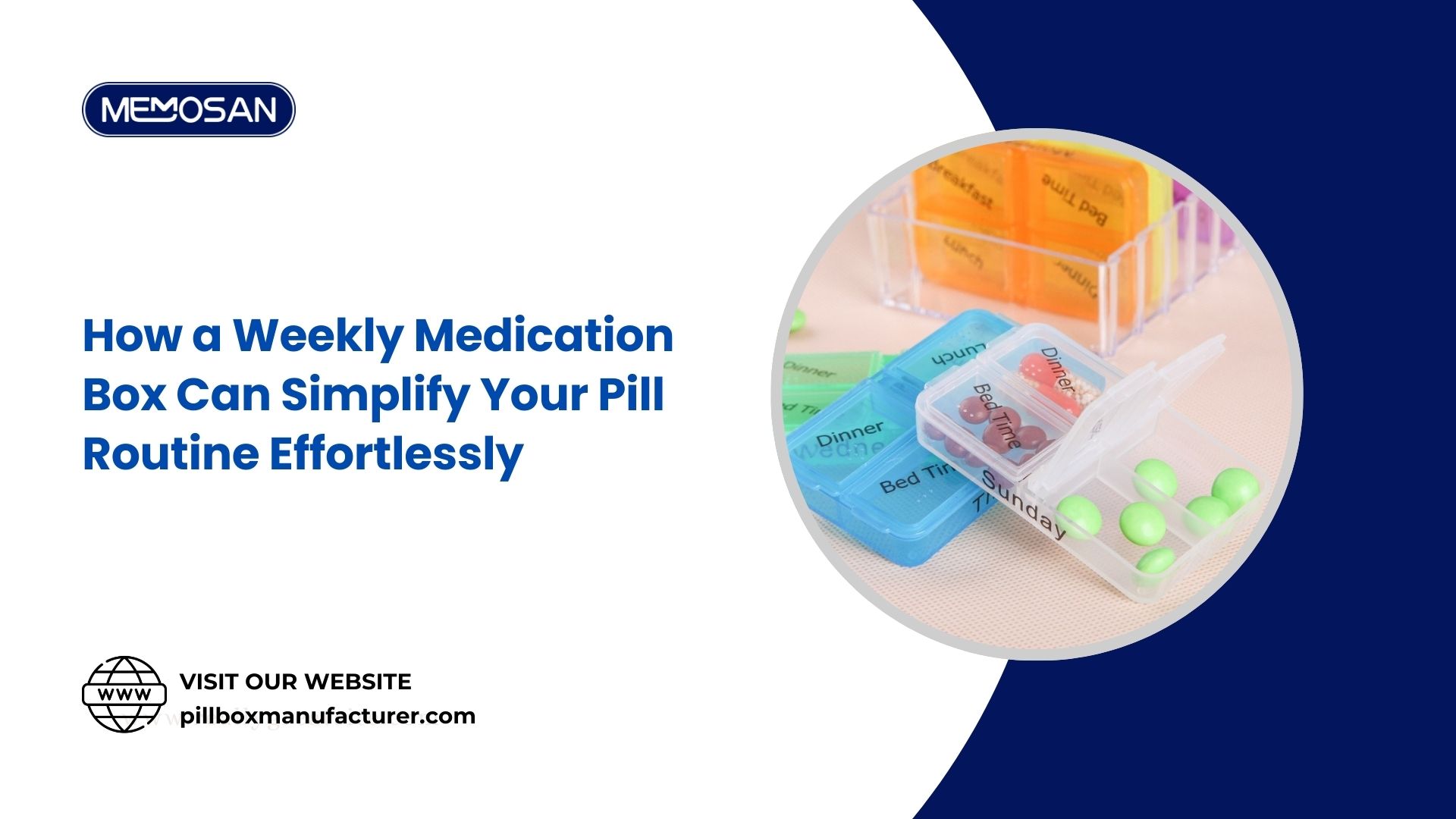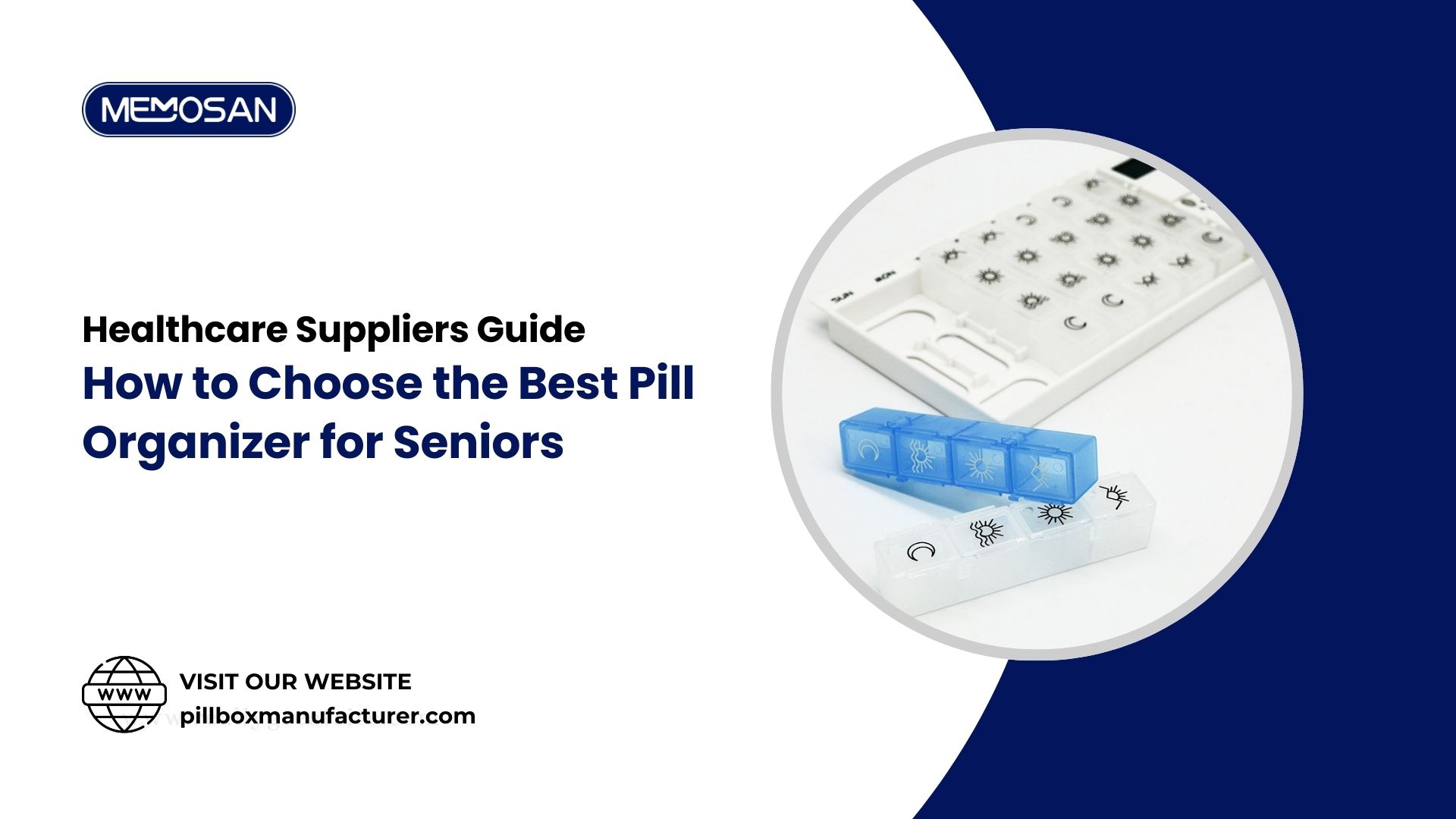Innovative yet simple solutions often profoundly impact the modern healthcare landscape. Pill boxes, in particular, have become vital tools for tackling medication management and adherence issues. By helping to organize medications and streamline daily routines, pill boxes enhance patient health outcomes and lead to notable decreases in healthcare expenses. This blog explores the various ways pill boxes provide these advantages.
The Challenge of Medication Non-Adherence
Medication non-adherence, which occurs when patients do not take their medications as directed, is a widespread problem across the globe. The World Health Organization (WHO) reports that almost 50% of patients with chronic illnesses in developed nations do not follow their treatment plans. This results in:
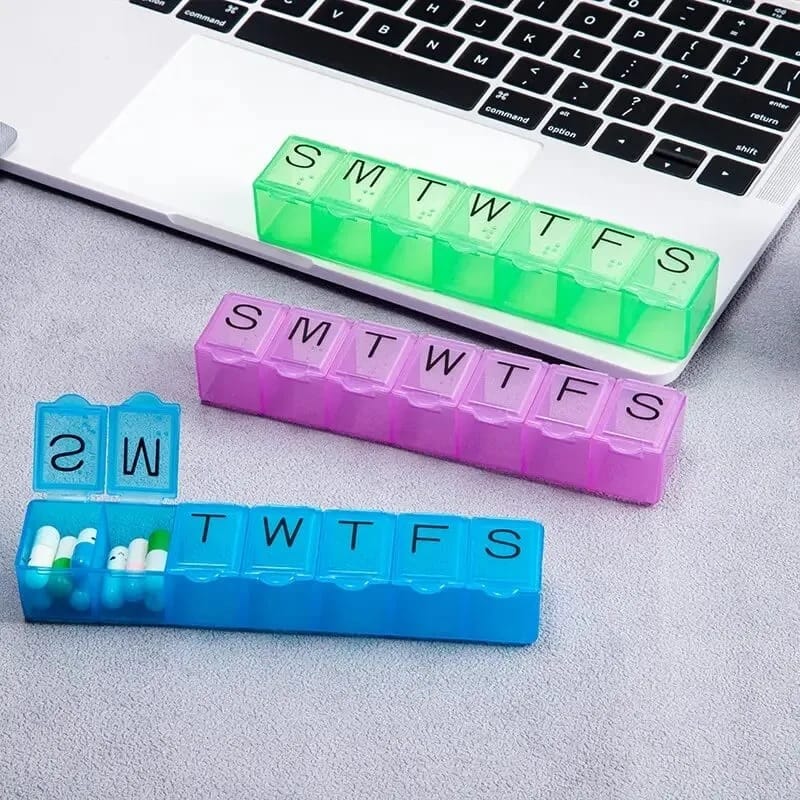
- Deteriorating health conditions.
- More frequent hospital visits.
- Elevated mortality rates.
What Are Pill Boxes and How Do They Work?
Pill boxes, often called pill organizers or medication dispensers, are specially designed containers that help store and sort medications according to day, time, or dosage. They come in various designs, ranging from basic daily compartments to sophisticated electronic dispensers, catering to the needs of different patients.
Basic Pill Boxes: Perfect for individuals with straightforward medication schedules.
Weekly Pill Organizers: Great for those needing to manage several medications simultaneously.
Smart Pill Dispensers: These come with features like alarms, reminders, and even smartphone connectivity for more tech-oriented people.
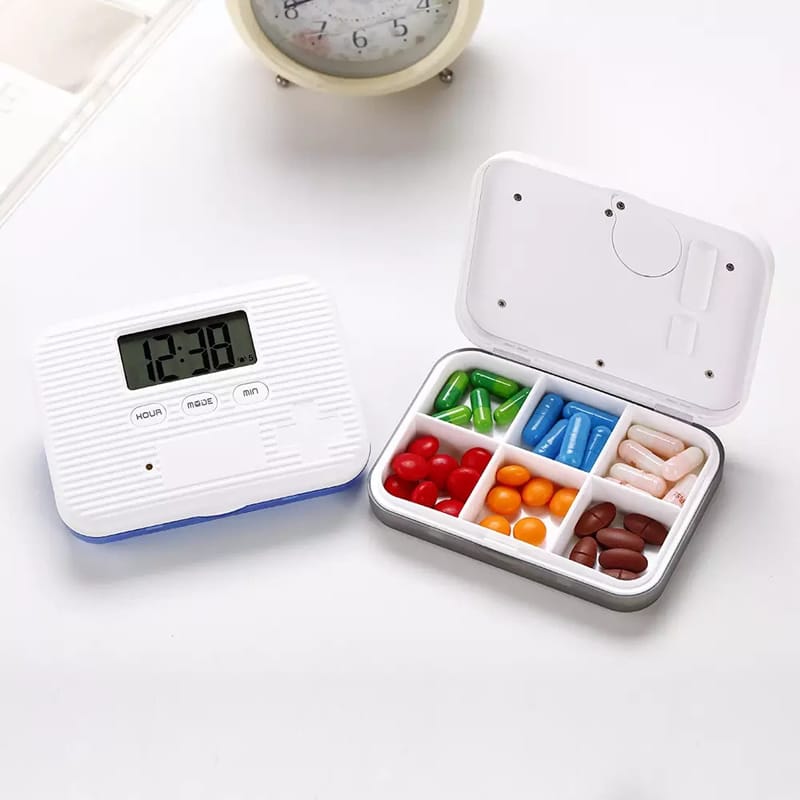
These tools act as both visual and physical reminders, helping to minimize the chances of missed doses or accidental overdoses.
Improving Patient Outcomes Through Better Adherence
One significant advantage of pill boxes is their role in improving medication adherence. With organized compartments, patients can easily avoid confusion and ensure they take the correct medication at the appropriate times. Here is how:
Enhanced Disease Management: Consistent medication use helps manage chronic conditions like diabetes, hypertension, and asthma effectively.
Reduced Emergency Room Visits: Adhering to prescribed medications can lower the risk of complications that might lead to emergencies.
Better Quality of Life: Regular treatment helps alleviate symptoms and boosts overall health and well-being.
Empowering Patients and Caregivers
Pill boxes empower patients by promoting independence and confidence in managing their health. For elderly individuals or those with cognitive challenges, these organizers make complex medication regimens easier to handle. Caregivers also experience significant advantages:
- Less stress and time spent on tracking medications.
- Peace of mind knowing that loved ones are following their prescribed schedules.
- Improved ability to monitor adherence with advanced pill boxes that include tracking features.
Economic Benefits: Reducing Healthcare Costs
Non-adherence leads to an estimated $300 billion in avoidable healthcare costs each year in the U.S. Pill boxes can help reduce these expenses by:
Decreasing Hospital Readmissions: Using medications correctly helps prevent relapses or worsening health issues.
Minimizing Unnecessary Doctor Visits: Better adherence means fewer trips to the doctor.
Reducing Waste: Timely medication use ensures that drugs are not wasted or left unused.
Investing in straightforward tools like pill boxes can result in significant long-term savings for healthcare systems, employers, and insurance providers.
Technology-Enhanced Pill Boxes: The Future of Medication Management
Incorporating technology into pill boxes has transformed how patients adhere to their medication schedules. Modern smart pill dispensers provide features like:
- Automated Reminders: Alarms, push notifications, or voice alerts.
- Real-Time Tracking: Applications that enable patients or caregivers to monitor medication usage.
- Connectivity: Integration with health apps and platforms for more efficient healthcare management.
By blending ease of use with cutting-edge technology, these devices appeal to tech-savvy patients and significantly improve adherence rates.
Choosing the Right Pill Box: Factors to Consider
Choosing the right pill box is important and should be based on personal needs. Key considerations include:
Medication Complexity: Whether you need a single-dose or multiple-dose system.
Patient Age and Cognitive Ability: Opt for simpler designs for seniors or those with cognitive challenges.
Frequency of Use: Decide between daily or weekly organizers.
Budget and Features: Options range from basic models to advanced smart dispensers.
Helping patients understand how to select the right pill organizer can greatly improve its effectiveness.
Environmental and Social Impact of Pill Boxes
Pill boxes also contribute to environmental sustainability and community well-being:
- Reduced Medication Waste: By promoting timely use of medications.
- Increased Awareness: Encouraging adherence creates a culture of health accountability.
- Lower Carbon Footprint: Fewer healthcare visits and emergency services mean reduced environmental impact.
Promoting sustainable pill boxes made from eco-friendly materials is another avenue for positive impact.
Tips for Maximizing Pill Box Effectiveness
To make sure pill boxes work effectively:
- Regularly Refill Compartments: Keep up with your refill schedule.
- Incorporate into Daily Routines: Match medication times with daily habits, such as mealtimes.
- Educate Users: Offer straightforward instructions, particularly for older patients.
- Leverage Smart Features: Use alarms and tracking to improve adherence.
Healthcare providers can significantly help by teaching patients about the advantages of pill boxes and correct usage.
Final Summary
Pill boxes seem straightforward, but they significantly influence patient outcomes and healthcare expenses. These tools address essential gaps in the healthcare system by enhancing medication adherence, minimizing waste, and empowering patients. Whether utilizing traditional designs or cutting-edge smart dispensers, pill boxes offer an accessible and economical way to boost health. Promoting the widespread use of pill boxes can lead to healthier communities and a more sustainable healthcare system. This small but impactful innovation can benefit patients, caregivers, and providers.

